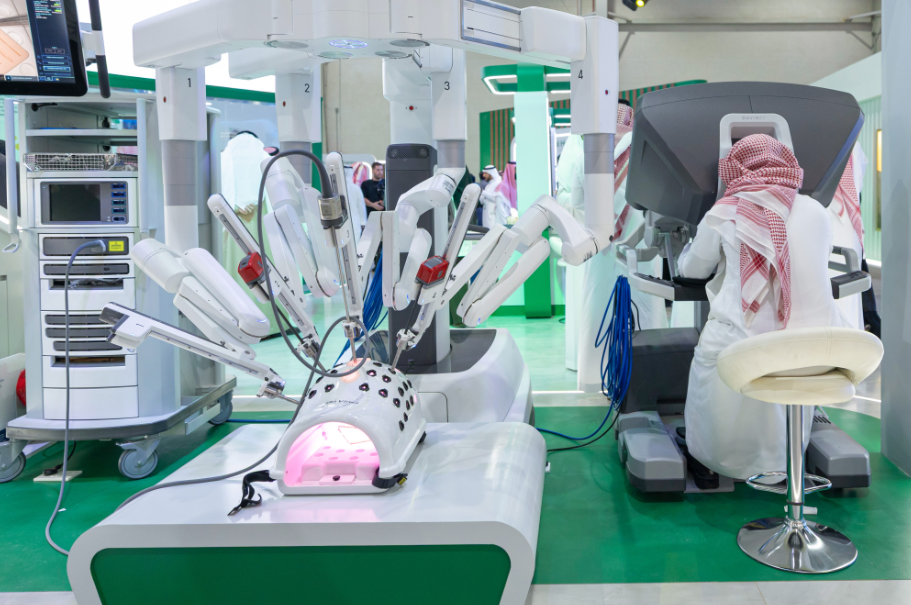Saudi Arabia Bets on Robotic Surgery to Lead the Medical Revolution
- Caroline Haïat

- 3 days ago
- 2 min read
Updated: 1 day ago

The King Faisal Specialist Hospital and Research Centre (KFSHRC) unveiled its next-generation robotic surgery system at the 2025 Global Health Exhibition in Riyadh. The event, held at the Riyadh International Convention and Exhibition Center, brought together leading figures from the global medical industry. The message is clear: Saudi Arabia is determined to position itself as a global leader in surgical innovation.
For several years, KFSHRC has been a pioneer in integrating robotic technologies into the operating room. In 2024, its teams performed 1,370 robotic-assisted procedures — an increase of nearly 30% in just one year. This growth reflects not only the hospital’s sustained investment in technology and medical training but also the growing trust of surgeons in these precision tools.
The hospital’s achievements now extend far beyond the regional level. KFSHRC has performed several world firsts, including a fully robotic liver transplant, a complete heart transplantation, and the first robot-assisted removal of an intracranial brain tumor. Behind these milestones lies an ambitious strategic vision: to make robotic surgery the gold standard for all high-risk and technically complex operations. To achieve this goal, the hospital focuses on training Saudi surgeons in cutting-edge techniques and building a national ecosystem of medical expertise capable of competing with the world’s top centers.
The rise of medical robotics is fully aligned with Vision 2030, Saudi Arabia’s national roadmap for modernization and economic diversification. Robotics is experiencing strong momentum across the Kingdom, fueled by major government initiatives, a rapidly growing market, and an expanding range of applications. The industrial robotics market alone was valued at USD 178.2 million in 2024 and is projected to reach USD 543.7 million by 2033. Robotics is also expected to expand into new fields, such as agriculture — a sector that has long remained under-automated in the Kingdom.
The Ministry of Health has identified robotic surgery as one of the pillars of its National Transformation Program, alongside telemedicine, smart hospitals, and biotechnology. The goals are twofold: to enhance the quality and safety of healthcare, and to establish Saudi Arabia as a regional hub for medical innovation — one that attracts researchers, companies, and patients from across the Middle East.
To this end, partnerships have been forged with international universities and robotics companies to facilitate knowledge transfer and train a new generation of Saudi surgeons. Riyadh has become the epicenter of this transformation, hosting training centers and robotic surgery simulation programs designed to familiarize physicians with the digital tools of the modern operating room.
The benefits for patients are already tangible: smaller incisions, minimal scarring, faster recovery times, and shorter hospital stays. The precision of robotic movements significantly reduces the risk of complications and blood loss.
Yet one question remains: how can these technological advances be democratized so that they benefit all citizens, and not only an urban elite? The Ministry of Health has already announced plans for a national network of robotic surgery, aimed at pooling resources and ensuring a more equitable distribution of equipment and expertise across the country.
Caroline Haïat




Comments